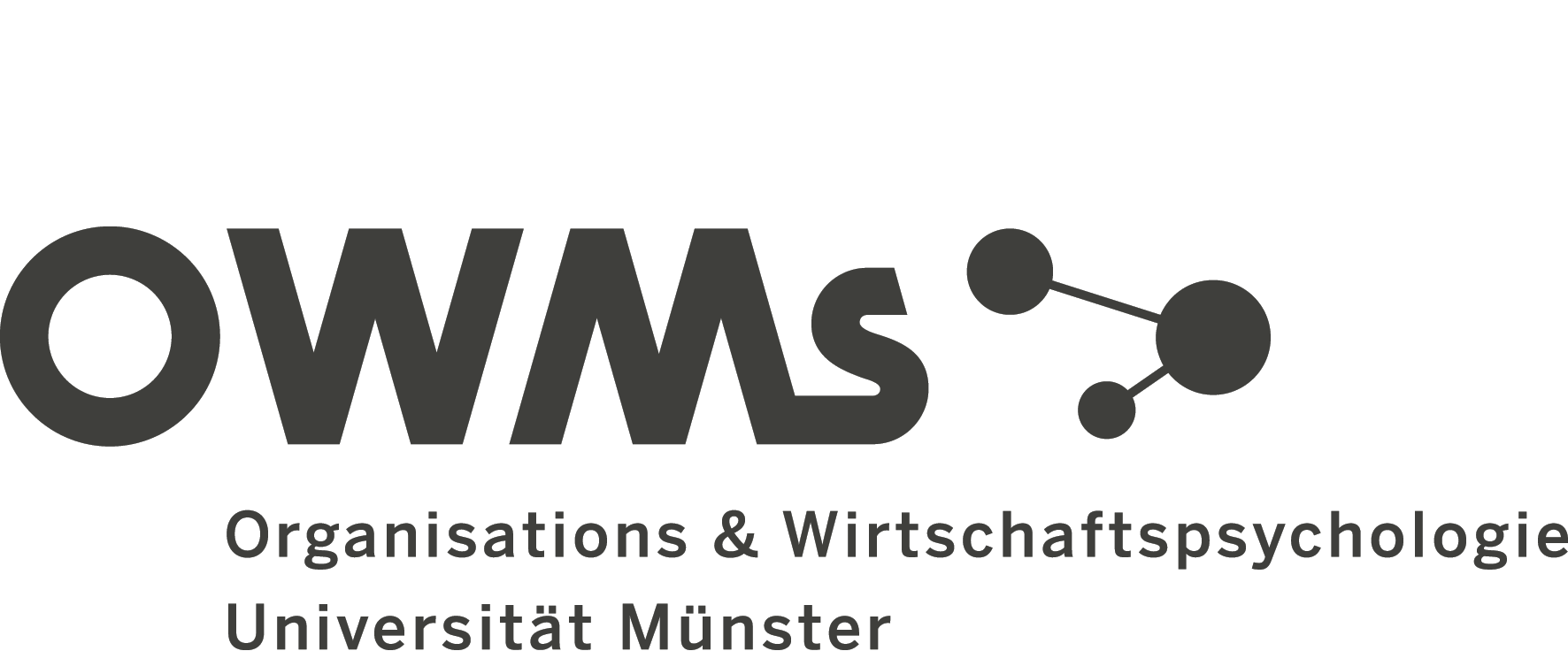
Electronic Human Resource Management (E-HR) und Künstliche Intelligenz (KI)
Aufgrund der Bestrebungen vieler Unternehmen, ihre HR-Prozesse zu globalisieren, wächst auch der Bedarf nach neuen Medien, mithilfe derer das HR-Management weltweit operieren kann. Neben den bereits seit einiger Zeit stärker genutzten Möglichkeiten der Online-Testung von Bewerbern, entstehen mittlerweile weitere Lösungen im Bereich eAssessment (z. B. Plattformen zur zeitversetzten, webgestützten Durchführung von Bewerbungsgesprächen). Aber auch außerhalb des Assessment-Bereichs entsteht ein wachsendes Interesse an dem Einsatz neuer Medien, beispielsweise zur Rekrutierung neuer Mitarbeiter.
Die Herausforderungen der Zukunft in diesem Themenkomplex spiegeln sich in den Fragen wider, mit denen wir uns beschäftigen:
- Welche innovativen Methoden der Mitarbeiter-Gewinnung, -Auswahl und -Entwicklung bieten sich durch neue Medien?
- Wie können die Nachteile des Einsatzes neuer Medien (z. B. unkontrolliertes diagnostisches Setting im Rahmen des eAssessment) kompensiert werden?
- Wie sollten HR-Instrumente gestaltet sein, um den Herausforderungen der zunahmenden Internationalisierung gewachsen zu sein (z. B. kulturelle Fairness)?
Publikationen
Hertel, G., Fisher, S. & Van Fossen, J. (in press). Motivated Trust in AI: An integrative model considering multiple stakeholder views in HRM. Research in Human Resource Management.
Abstract: Artificial Intelligence (AI) is increasingly used across human resource management (HRM) functions, yet successful integration is contingent upon these tools being trusted within the organizations. Whereas longstanding cognitive models of trust have been extended to technology and AI as references of trust, motivational influences on trust in technologies have been neglected thus far. However, the consideration of motivational drivers is particularly important to understand and predict different stakeholder views on trust in AI. We integrate cognitive frameworks of trust in AI with more recent approaches of trust motivation stemming from interpersonal trust research. Based on this new integrative model, we specify motivational drivers and cognitive processes for trust in AI for four separate HRM stakeholder perspectives: the employer, decision makers, decision targets, and HR professionals. Particularly the perspective of HR professionals has been neglected so far, despite the fact that this group is often closely involved with the implementation of AI systems and may see considerable changes to their job tasks after AI adoption. We discuss the theoretical implications of the different stakeholder perspectives for future research and outline specific practical implications of our integrative model.
------------
Höddinghaus, M., Nohe, C., & Hertel, G. (online first 2023): Leadership in virtual work settings: what we know, what we do not know, and what we need to do. European Journal of Work and Organizational Psychology. https://doi.org/10.1080/1359432X.2023.2250079
------------
Eisbach, S., Mai, O., Hertel, G. (2024). Combining theoretical modelling and machine learning approaches: The case of teamwork effects on individual effort expenditure, New Ideas in Psychology, 73, 101077, https://doi.org/10.1016/j.newideapsych.2024.101077
-----------
Eisbach, S., Langer, M., Hertel, G. (2023). Optimizing human-AI collaboration: Effects of motivation and accuracy information in AI-supported decision-making. Computers in Human Behavior: Artificial Humans, 1(2), 100015. https://doi.org/10.1016/j.chbah.2023.100015.
------------
Eisbach, S., Heghmanns, M. & Hertel, G. (2022). Künstliche Intelligenz im Strafverfahren am Beispiel von Kriminalprognosen. Zeitschrift für Internationale Strafrechtswissenschaft, 7-8, 489-496.
------------
Höddinghaus, M. & Hertel, G. (2021). Trust and Leadership: Implications of Digitization. In Blöbaum, B. (Ed.), Trust and Communication. Findings and Implications of Trust Research (pp. 185-206). Springer Nature. https://link.springer.com/chapter/10.1007%2F978-3-030-72945-5_9
------------
Höddinghaus, M., Sondern, D. & Hertel, G. (2021). The automation of leadership functions: Would people trust decision algorithms? Computers in Human Behavior, 116, 106635. https://doi.org/10.1016/j.chb.2020.106635
------------
Hertel, G., Meeßen, S. M., & Höddinghaus, M. (2020). Trust in the Context of e-HRM. In Bondarouk, T. & Fisher, S. (Eds.), Encyclopedia of Electronic HRM (pp. 76–81). Berlin: De Gruyter Oldenbourg. https://doi.org/10.1515/9783110633702-012. [Link]
------------
Hertel, G., Stone, D., Johnson, R., & Passmore, J. (2017). The Psychology of the Internet at Work. In G. Hertel, D. Stone, R. Johnson, & J. Passmore (Eds.), The Wiley Blackwell Handbook of the Psychology of the Internet at Work (p.1-18). Chichester: Wiley-Blackwell. [Link] mehr Informationen
------------
Hertel, G. & Lauer, L. (2012). Führung auf Distanz und E-Leadership – die Zukunft der Führung? In Grote, S. (Hrsg.), Die Zukunft der Führung (S. 103-118). Berlin: Springer.
------------
Gnambs, T., Batinic, B. & Hertel, G. (2011). Internetbasierte psychologische Diagnostik. In L.F. Hornke & M. Amelang (Eds.), Enzyklopädie der Psychologie, Psychologische Diagnostik 3, Leistungs-, Intelligenz- und Verhaltensdiagnostik (S. 447-498). Göttingen: Hogrefe.
------------
Konradt, U., Syperek, S. & Hertel, G. (2011). Testing on the Internet: Faking in a web-based self-administered personality measure. Journal of Business and Media Psychology, 1, 1-10.
------------
Hertel, G. & Schroer, J. (2008). E-HRM: Personalarbeit mit netzbasierten Medien. In B. Batinic (Hrsg.), Lehrbuch Medienpsychologie (S. 449-476). Heidelberg: Springer Verlag.
------------
Hertel, G., Schroer, J., Batinic, B. & Naumann, S. (2008). Do shy persons prefer to send e-mail? Personality effects on communication media preferences in threatening and non-threatening situations. Social Psychology, 39, 231-243.
------------
Hertel, G. & Konradt, U. (Hrsg.) (2004). Human Ressource Management im Inter- und Intranet. Göttingen: Hogrefe.
------------
Hertel, G., Konradt, U. & Orlikowski, B. (2003). Ziele und Strategien von E-Assessment aus Sicht der psychologischen Personalauswahl. In U. Konradt & W. Sarges (Hrsg.), E-Recruitment und E-Assessment. Rekrutierung, Auswahl und Beurteilung von Personal im Inter- und Intranet (S. 37-54). Göttingen: Hogrefe.
------------
Konradt, U., Hertel, G. & Joder, K. (2003). Web-based assessment of call center agents: Development and validation of a computerized instrument. International Journal of Selection and Assessment, 11, 184-193.
------------
Hertel, G., Naumann, S., Konradt, U., & Batinic, B. (2002). Person assessment via Internet: Comparing online and paper-and-pencil questionnaires. In B. Batinic, U. Reips & M. Bosnjak (Hrsg.), Online Social Sciences (pp. 115-133). Berlin: Hogrefe.

